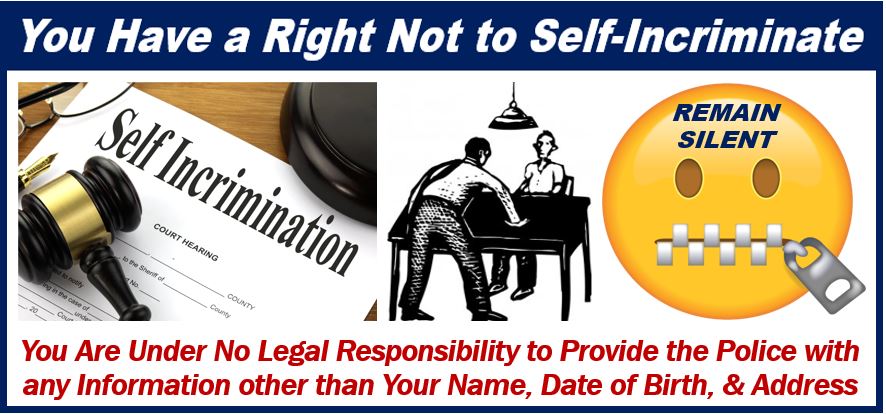When you’re stopped by law enforcement, do you know your legal protections? Usually individuals find the prospect of engaging with a cop unsettling, if not downright terrifying. When the cops come calling, if you don’t know how to respond and whether you ought to, you can end up implicating yourself.
You have a constitutional right to remain silent. The Fifth Amendment is what it’s called. It declares that no one can be forced to testify against themselves in a criminal proceeding.

The Miranda rights are there to help us not self-incriminate; a man charged with a gun-related offense in Dallas learned the hard way as he now sits in custody for sharing details of the incident pre-maturely.
Police Interrogation Techniques
Most people assume police officers are not authorized to lie and use deception to persuade individuals to make potentially compromising comments; nevertheless, nothing could be farther from the truth. The police are trained to do just that, they’ll go to any extent to persuade you to incriminate yourself.
Police officers have one goal in mind when interrogating a suspected criminal. Confession and self incrimination, it makes their job easier. There are numerous techniques out there, but this article focuses on four methods tried and tested by the people in blue.
1. The Reid Technique
The Reid technique, named after the police officer who developed it, entails a nine-step interrogation method in which detectives ask the suspect questions after establishing a positive rapport. Officers are taught to observe the responder’s behaviour while they are being questioned.
This method follows the logic that when guilty people are interrogated by law enforcement, they are more anxious than innocent people. As the interrogation develops, the worry of innocent persons decreases, and vice versa.
This method proposes a trifecta of distinct ways by which individuals engage verbally, which involves word choices and para linguistics. Speech characteristics outside of the verbal text; and nonverbally, which includes body position, limb movements, eye contact, and facial gestures.
This method is not entirely foolproof, though, as people may overreact during interrogation, which should not mean they are automatically guilty. To error is human, and the police are no exception.
2. Intimidation
In rare circumstances, police will interrogate a suspect by bombarding them with questions or threatening them. The cops may act as though they already know you broke the law and perhaps even inform you how you’ll spend the rest of your days imprisoned under horrific conditions.
They also employ the pride-and-ego-down strategy, in which the interrogator debases and degrades you in order to elicit information. The investigator will mentally and emotionally harass you in the hopes the subject would finally try to reclaim his or her concept of self.
3. Interrogators’ Role Reversal
Officers frequently work together, with one posing as the more aggressive cop and the other as the nicer. While the “hostile” and “menacing” officer leaves the room, the “friendly” officer will try to make the suspect feel relaxed and supported, and may even urge the suspect to share their side of the story.
This method is meant to throw you off by making you believe you are setting the record straight; the officer has no intention of doing that. Anything you say can and will be used against you in a court of law.
4. The PEACE Method
Developed by a team of police officers and psychologists, the PEACE Method is an acronym for preparation and planning, engaging and explaining, account, closure, and evaluation. Rather than being confrontational with the suspect, the police get as much information as needed before determining if the suspect is telling the truth, depending on what they already know about the situation.
You Have a Right Not to Self-Incriminate
You are under no legal responsibility to provide the police with any information other than your name, date of birth, and address. Make use of your Fifth Amendment rights and get a lawyer.
Interesting related article: “What is a Lawyer?“

